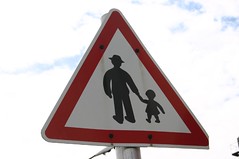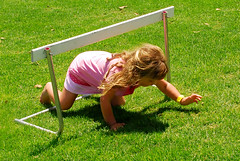Many years ago I taught middle school math in a small K-8 school in Central Maine. Each year our 8th grade students had a ceremony that celebrated their transition from this K-8 building into the high school. It resembled a high school graduation in many ways (although no one in the school dared to call it one but that is a conversation for another day) including speeches by some of the top students.
One of my last years teaching in that school I found myself listening to Nick, one of my students, give a speech about his years in this building. In his address he noted me particularly for being a caring teacher who looked out for his students. My initial responses to this statement were pride and joy that Nick felt that way and expressed it in this venue. One of the examples he cited was a situation earlier in the year when I called his house when he was injured playing with some friends to see how he was doing. At the time I didn't see this phone call as a tremendous feat of caring. I really didn't think much of it at all. I just wanted to make sure he was ok, find out if he knew when he'd be returning to school and to see if he needed anything from school.
As I thought about Nick's statements my pride and joy turned to anxiety. I started thinking about how many little interactions had I shared with students that I didn't think much about that were not so positive? It really hit me how powerful my interactions, as an educator, are with students. It really is a matter of all the little things we do that makes all the difference in the world. From that day on, I have tried to be more careful of quick flip responses and how I interact with students (as well as other teachers).
Now... why am I writing a blog post approximately ten years later about Nick and his 8th grade speech?
I read a great post today by Scott McLeod about Paul Potts and Susan Boyle who have shown tremendous talent at later ages on the hit show, 'Britain's Got Talent.' In the post Scott writes...
As schools and societies, we often fail to create the conditions in which talent can be nurtured, recognized, and utilized.Reading this made me think about the little things we do (and don't do) with kids and how so many students can slip through the cracks - flying under everyone's radar like Potts and Boyle. Let's reach out to the Nick's of the world and look carefully for those little things that happen everyday as students show up glimpses of their talent.










